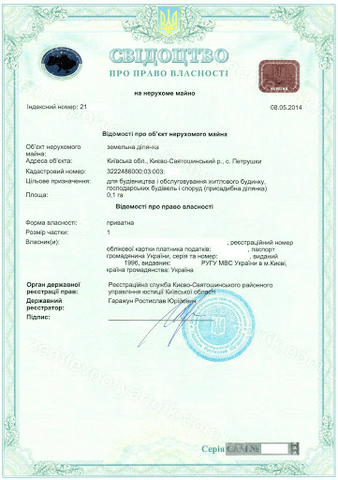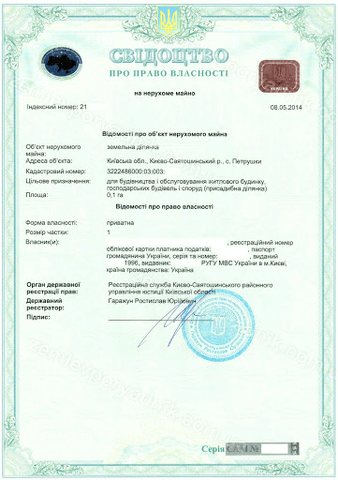Is it required to notarize yearlong rental agreement which has been prolonged twice?
Cost of services:
Reviews of our Clients
In accordance with Section 2 of Article 793 of the Civil Code of Ukraine real estate rental agreements (lease) which were entered into for the period of three and more years are to be notarized and in accordance with Article 794 they must also undergo state registration. In practice it is not always clear whether these requirements are to be complied with in case when parties entered into rental agreement for 1 year and then there happened several prolongations for the same period. By means of such prolongations the total duration of contractual relations of rental was equal / could be equal to three years or more. Can such not notarized and not registered agreement be recognized as void by parties or third persons (for example by Tax Service of Ukraine)?
Many lawyers think that such agreement is to be notarized and registered by the state. It is based on the fact that legal nature of prolongation means continuance of agreement validity on the same terms which were in force at the moment when the agreement was entered into. This is why a real estate rental agreement which was entered into for 1 year and goes along with a couple of supplemental agreements which together prolong validity for another two years (or more) will be considered entered into for a period of more than 3 years. In order to avoid notarization and registration it is recommended to enter into a new agreement which stipulates term of rental which is less than 3 years.
And what should be done if prolongation and / or supplemental agreements cause term of agreement to be greater than 3 years? Is it possible to prove validity of the agreement in such case?
It is possible. But in order to do so one must understand and interpret the legal nature of term “agreement” which is provided by Articles 793, 794 of the Civil Code of Ukraine. If one considers that these articles define agreement as legal relations that were formed between parties than it is possible to conclude that such agreement has to be notarized and registered in case when duration of these legal relations equals to 3 years or exceeded this term. If we define an agreement as bargain between two parties than no notarization and registration is required in this case.
Because in accordance with Article 202 of the Civil Code of Ukraine a bargain is an action of a person which is aimed at establishment, alternation or termination of civil rights and obligations. Thus, it is basically one time phenomenon. In this case entry into agreement is a one bargain and its prolongation is another bargain, its prolongation by entry into supplemental agreement – the third one. And if the bargains include contractual relations with duration less than three years, the notarization will not be required. Thus, if an agreement was entered into for a year, prolonged for 2 years by means of non-resistance and then prolonged for another 2,5 years though entry into supplemental agreement it is not required to notarize and register the agreement in either of this cases since each of these bargains has term of contractual relations which is less than 3 years.
The fact that Articles 793, 794 define agreement as a bargain rather than legal relations is supported by word “entry” in Article 794. A bargain can be entered into unlike legal relations that are established, lasting, altered or terminated.
Moreover recognition as void under Section 4 of Article 203 of the Civil Code of Ukraine incompliance with required form and Section 1 of Article 220 of the Civil Code of Ukraine (incompliance with requirements about notarization) can be applied only to a bargain and not to legal relations. And since a bargain is a onetime action the analyzed agreement can be recognized as void only in case when it was entered into or prolonged for the period of three years or more. If the three-year period resulted from two and more bargains (one is entry and others are continuation) all of them cannot be recognized as void since each one was in compliance with the requirements.
Of course such reasoning may be hard for understanding of parties and sometimes even for a judge. But it is based on reliable theoretical and legislative grounds which may help to deal with a situation in which terms of several bargains exceeded three-year term.
This comment was prepared by lawyers of Contract practice of law firm “Pravova Dopomoga”.






